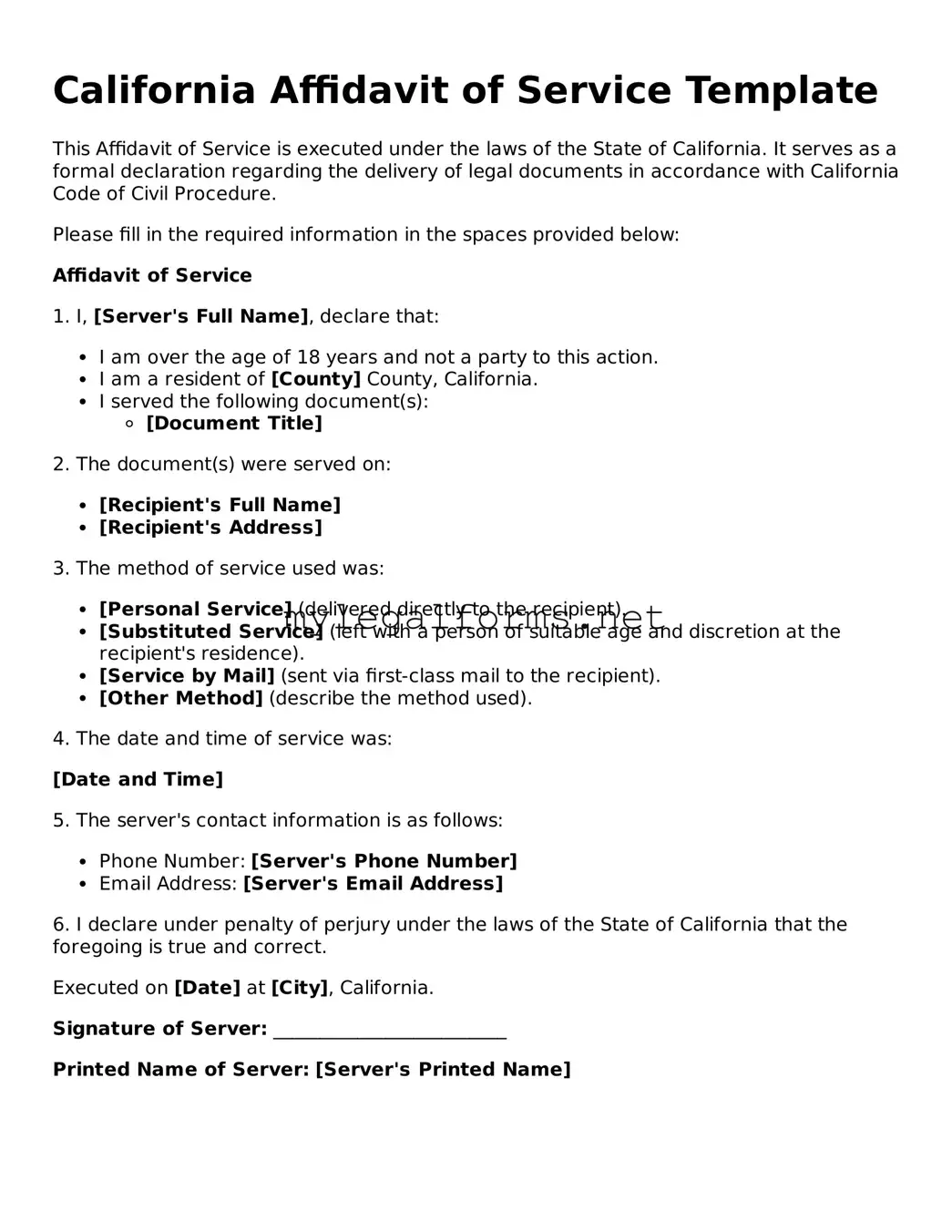Affidavit of Service Document for California State
The California Affidavit of Service form is a legal document used to confirm that a party has delivered court documents to another party. This form provides proof that the required legal notices were served, ensuring that all parties are aware of the proceedings. Understanding how to properly complete and file this form is essential for anyone involved in a legal case in California.
Launch Affidavit of Service Editor

Affidavit of Service Document for California State
Launch Affidavit of Service Editor

Launch Affidavit of Service Editor
or
⇓ PDF Form
Complete the form at your pace — fast
Finish your Affidavit of Service online and download the final version.